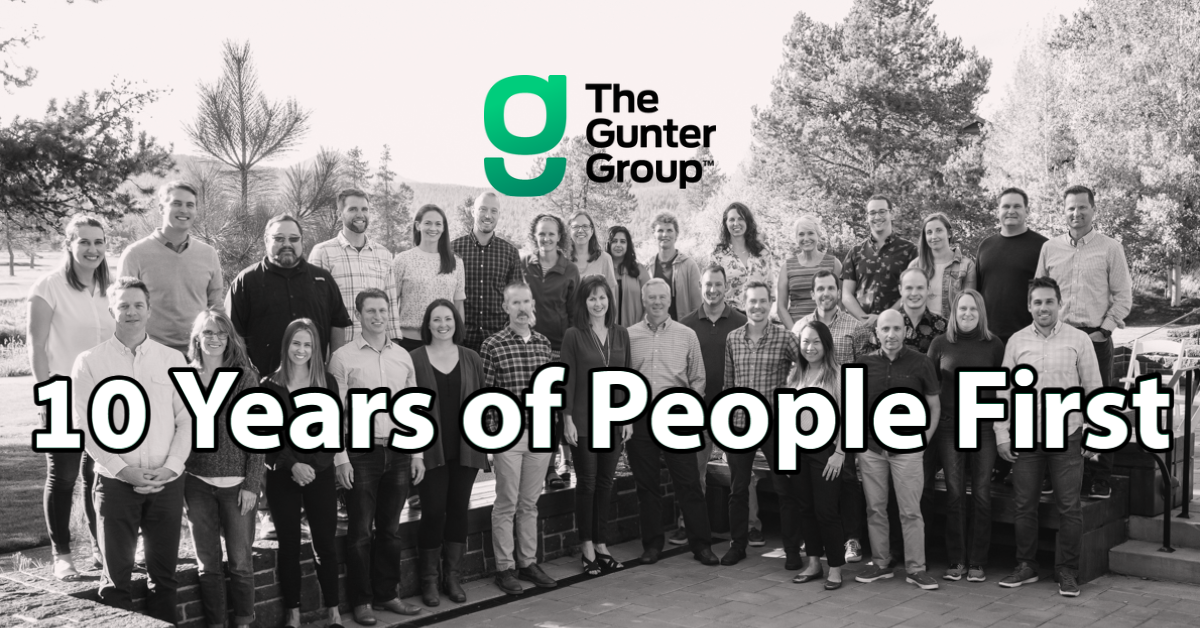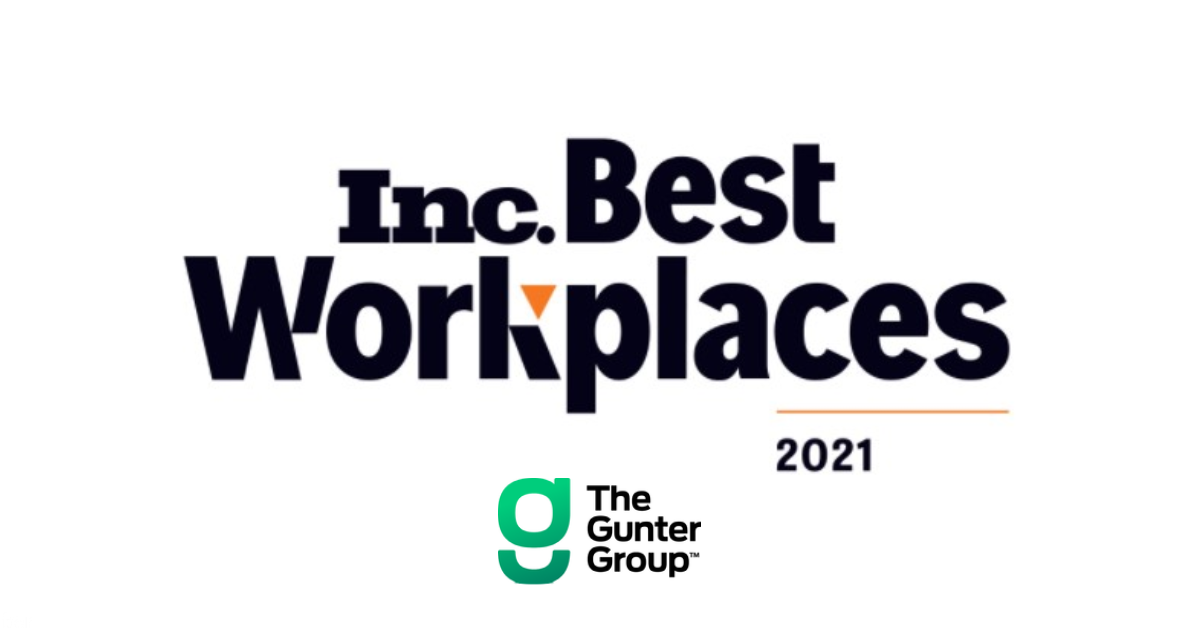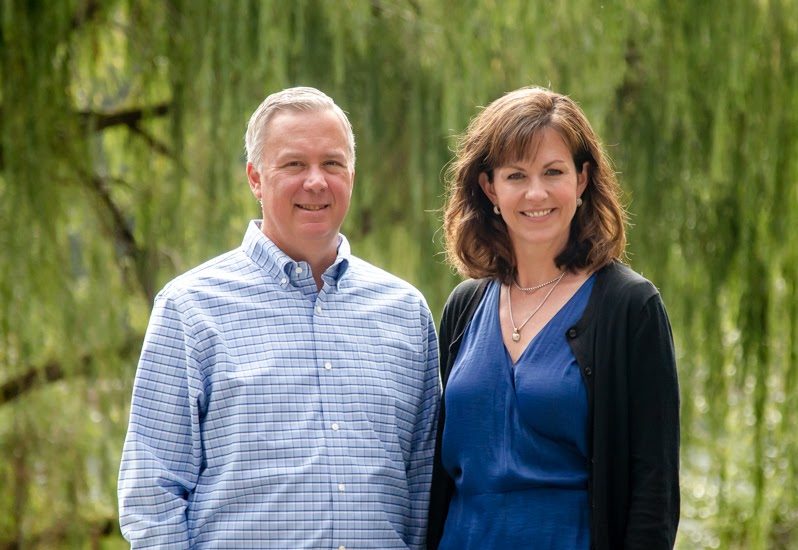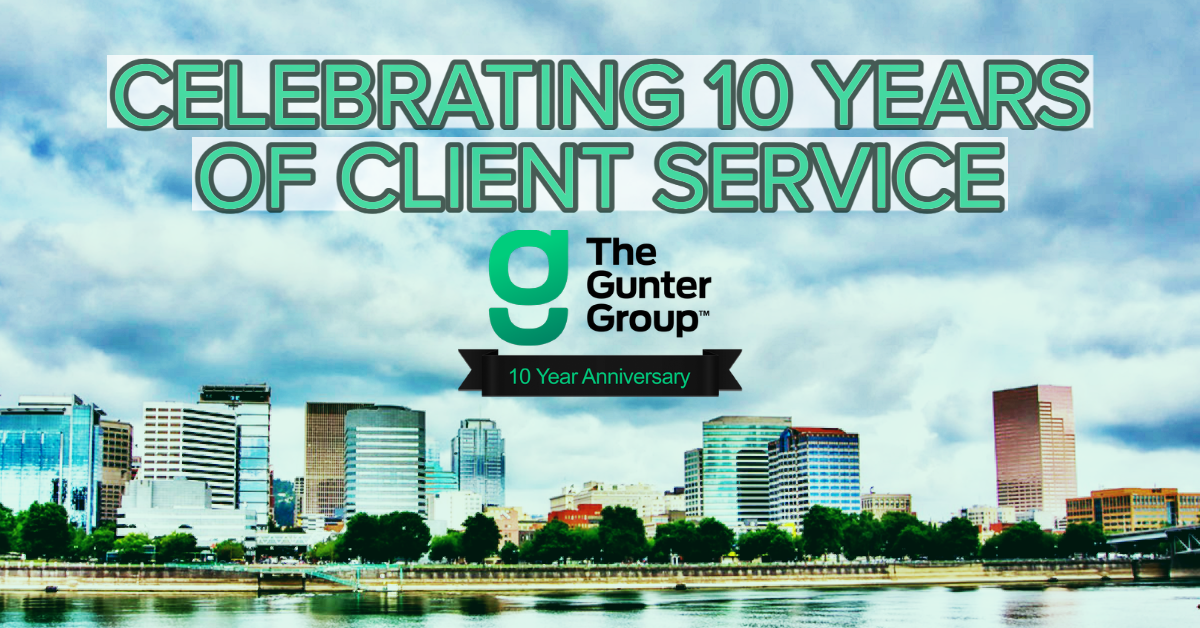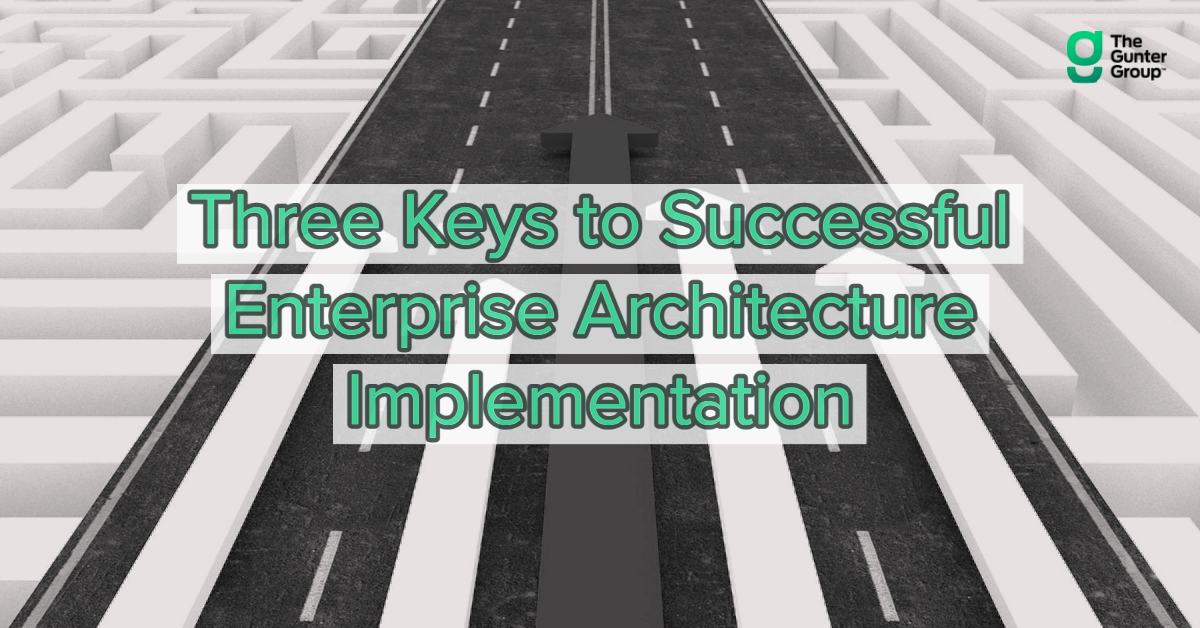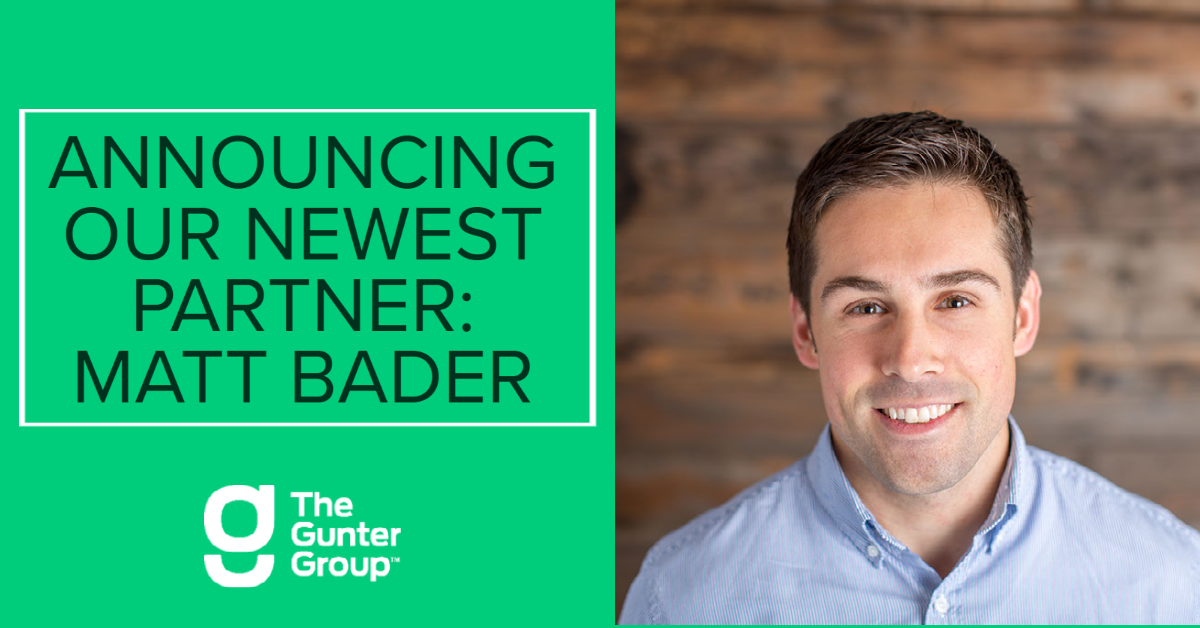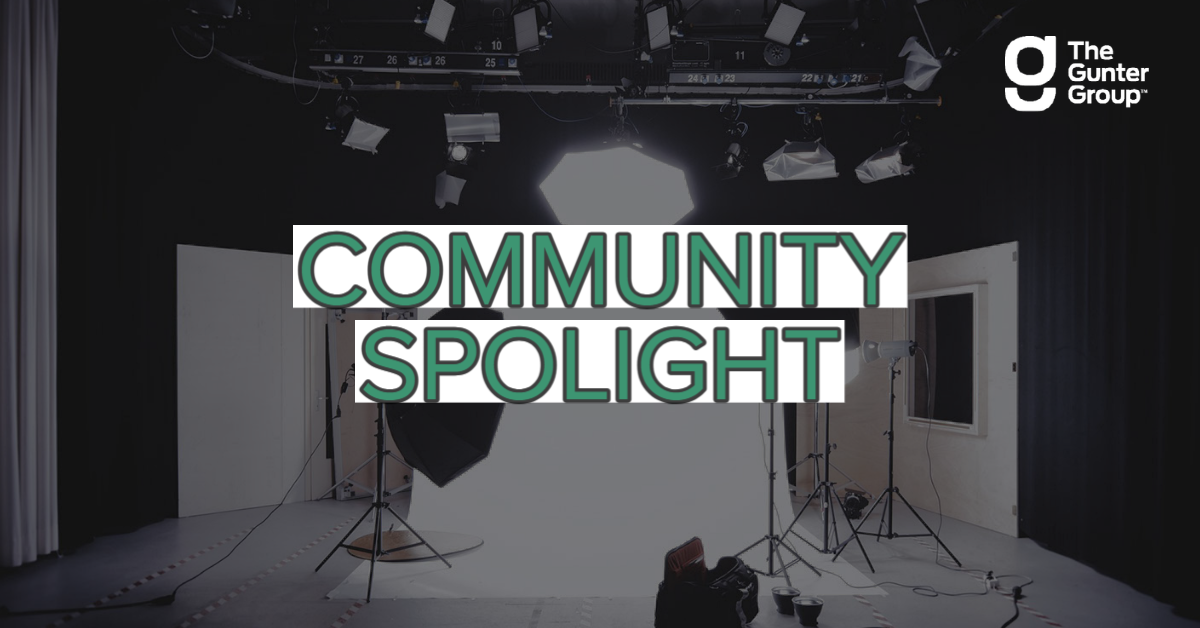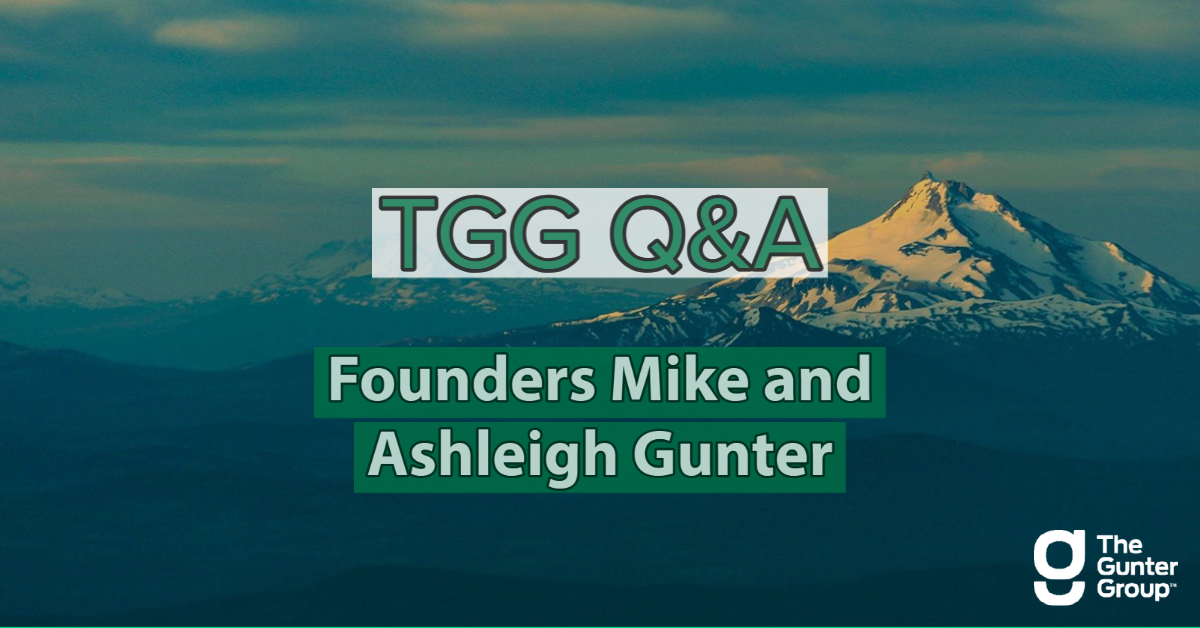Every decision we make comes back to people. Discover how seven focused themes help us identify and understand a person’s unique potential.
Tag Archives: Consulting
WHAT IS AGILE ENTERPRISE ARCHITECTURE?
(AND WHY SHOULD YOU CARE)
Agile enterprise architecture is an approach to EA that applies the principles of the agile methodology to improve outcomes. Here’s everything you need to know.
INC. MAGAZINE NAMES TGG BEST WORKPLACE FOR 2021
The Gunter Group has been named to Inc. Magazine’s highly competitive list of Best Workplaces for 2021. The Gunter Group was also recognized on the selective Best Workplaces Editors’ List.
MIKE & ASHLEIGH GUNTER:
LOOKING BACK & LOOKING AHEAD
We are really excited to be celebrating The Gunter Group’s 10 year anniversary! It has been an incredible journey these past 10 years, and we have so much for which to be thankful and proud.
CELEBRATING 10 YEARS
OF CLIENT SERVICE
The Gunter Group is proud to kick off our 10 Year Anniversary celebration, and will commemorate a decade of serving clients throughout the summer of 2021.
THREE KEYS TO SUCCESSFUL ENTERPRISE ARCHITECTURE IMPLEMENTATION
Discover three critical insights into transforming Enterprise Architecture and increasing value to organizations with a more agile approach.
FROM OUR PARTNERS: TGG PROUD TO ANNOUNCE OUR NEWEST PARTNER,
MATT BADER
We are proud to announce Matt Bader as the newest Partner in The Gunter Group. Matt embodies each of our company’s Non-Negotiables, and we wouldn’t be where we are today without him.
COMMUNITY SPOTLIGHT:
MADDIE BARBERA
Today we take a moment and celebrate TGGer Maddie Barbera’s community support for her generous work assisting with COVID-19 vaccine outreach among vulnerable populations in our local communities.
TGG Q&A: MIKE & ASHLEIGH GUNTER ON RECENT OREGON BUSINESS AWARD
The Gunter Group was recognized as the #3 Best Company to Work for in Oregon, in the medium-sized businesses category! This marks the 7th consecutive year The Gunter Group has made the Oregon Business list!
